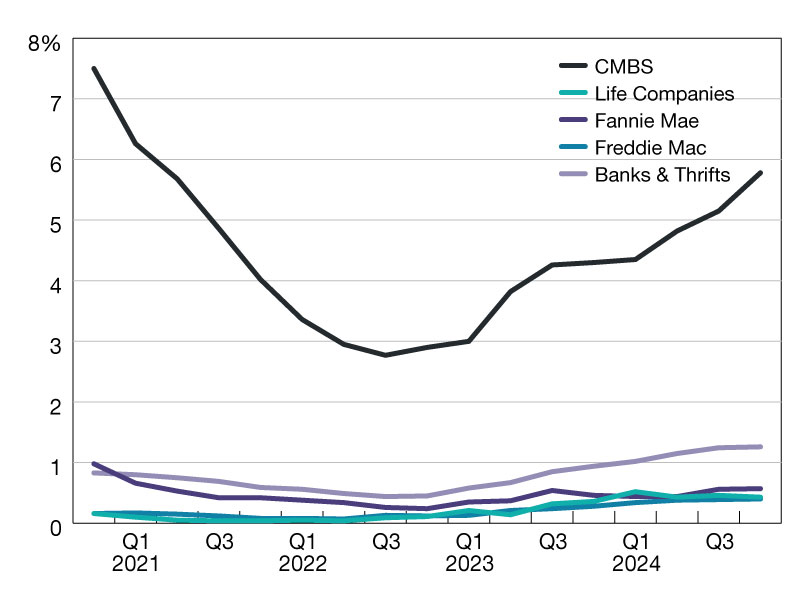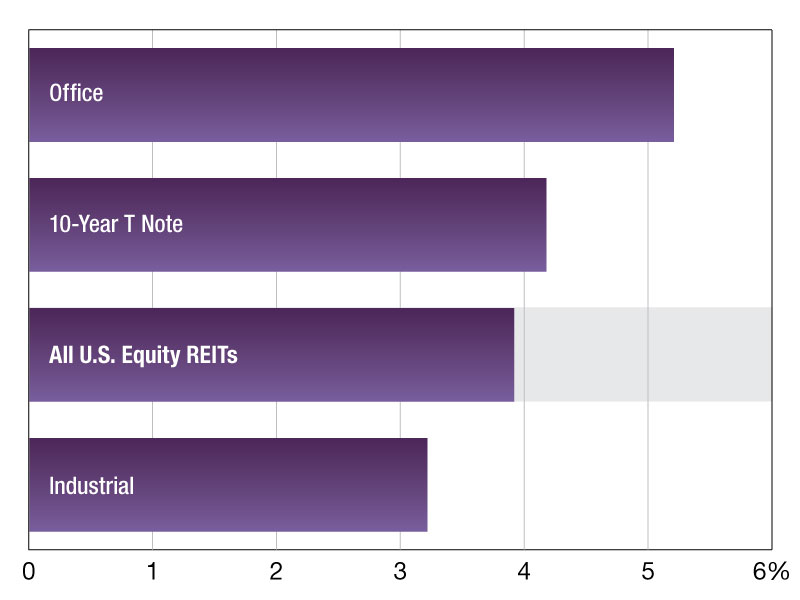Guest Column: New Rules for Real Estate Private Equity Funds
Jahn Brodwin and Tabish Rizvi of FTI Consulting discuss the best strategies for private equity funds in the new and increasingly challenging investment environment.
 By Jahn Brodwin and Tabish Rizvi
By Jahn Brodwin and Tabish Rizvi
On a positive note, the real estate private equity fund business is back! Capital is plentiful for those who can earn it. However, it is sequestered by a new and increasingly challenging environment.
Consider the current climate. Attractive deal flow is mostly scarce in primary and desirable markets. The stock market has set new highs; interest rates are at historical lows. Yet institutional investors must continue pursuing robust risk-adjusted returns in order to sufficiently meet their future obligations, which is again helping them realize that real estate should be part of their long-term, well-diversified portfolio allocation strategy.
The real estate bubble and collapse of the capital markets changed the nature of real estate investing dramatically. For most players, the markets never became flush with the opportunities to pick up distressed real estate at a steep discount. Some real estate private equity funds were able to use existing commitments from institutional investors to help reset their basis in legacy deals closed at the top of the market. But while this strategy has fared well vis-à-vis whole-dollar-profit, recovery and equity multiples, the institutional investors that inadvertently ended up backing them never really signed on for distressed debt investing. Rather, it was a defensive move. Pension funds depend on investments that generate an annual rate of return, which is why they are exploring newer real estate investment paths today.
Some industry players are distinguishing themselves by targeting more innovative investment opportunities, such as the secondary trading of positions in closed-end funds and launching new debt funds. These emerging platforms are gaining a lot of traction because both investors and sponsors have become more disciplined and know that justifying sub-5 percent cap rates for insipid deals in the face of sluggish fundamentals does not end well for them. On the other hand, some institutional investors are simultaneously tackling this issue on their own by earmarking small allocations for emerging real estate fund managers that they can control and monitor very closely.
However, any enthusiasm in the real estate private equity sector is tempered by the fact that it is still extremely difficult for virtually all funds to raise equity in this environment. Capital is available, but managers have to work a lot harder now to earn it and earn from it. Gone are the days when institutional investors and their consultants scrambled to reinvest their annual allocations for fear of being closed out of brand-name funds. Today, they are actively involved in the process. Investors remain wary of making blind commitments, without conducting detailed due diligence on the manager’s track record, investment strategy and operations. Eighteen months appears to be the new norm for achieving a final close.
In the next wave, real estate private equity funds that are willing to move beyond the old rules and norms will be the ones that thrive. At the top of this list, fund managers need to come to terms with the fact that they may no longer have unilateral discretion over pursuit of deals and deployment of capital. This new environment is forcing them to think differently about investor relations and internal operational strategy. For example, while once the holy grail was getting paid to deploy capital, today there is downward pressure on this practice. In some instances, fees have been replaced by a commitment to fund budgeted operating costs, at least until capital has been deployed. In other cases, investors that sign up early for large commitments receive a stake in the fund manager’s operating platform. This evolution is a welcome change for many participants, as it better aligns the investor’s and sponsor’s interests. In addition, it is not unusual to see portfolio management fees that were paid by investors treated as capital that sits at the highest level in the waterfall structure.
The market is also moving toward a fund-level waterfall structure. While managers might cry foul that this construct prohibits them from being able to distribute carried interests during the life cycle of the fund and retain talent, they are often amenable to some sort of a middle ground. For example, funds are now negotiating highly complicated structures where investors look back at the performance of previously realized deals and look ahead to the changes in net asset value of unrealized deals before making an interim carried interest distribution to the manager—a computation that can requires advanced algebra. If the fund happens to fail any of these tests, some proceeds are clawed back from the distribution.
This model provides managers with the flexibility to take some chips off the table when they need to, while discouraging them from executing a disaggregated investment strategy whereby only a handful of deals are home runs at the expense of others. In some cases, these types of negotiations have led players to set up a separate co-investment vehicle between their primary fund and one or more institutional investors. In this scenario, the institutional investor(s) may be able to cherry pick the deals they like best and double down, while passing on others or effectively reducing their commitment to investments that may not be in line with their preferences.
The real estate private equity fund industry is undergoing a subtle but significant transformation. The players have changed and the norms are still evolving. Each fund has its own story, and while there tends to be a similar foundation, the structures built on top of that foundation can vary meaningfully. Regardless of these variations, though, one thing is certain: Success in today’s changing climate will depend more now than ever on perseverance, adaptability and creativity.
Tabish Rizvi is a managing director and Jahn S. Brodwin is a senior managing director in the real estate solutions practice at FTI Consulting Inc. Contact Rizvi at 646-632-3854 or tabish.rizvi@fticonsulting.com. Contact Brodwin at 646-731-1501 or jahn.brodwin@fticonsulting.com. Views expressed herein are those of the author and do not necessarily reflect the views of FTI Consulting and its other professionals.







You must be logged in to post a comment.